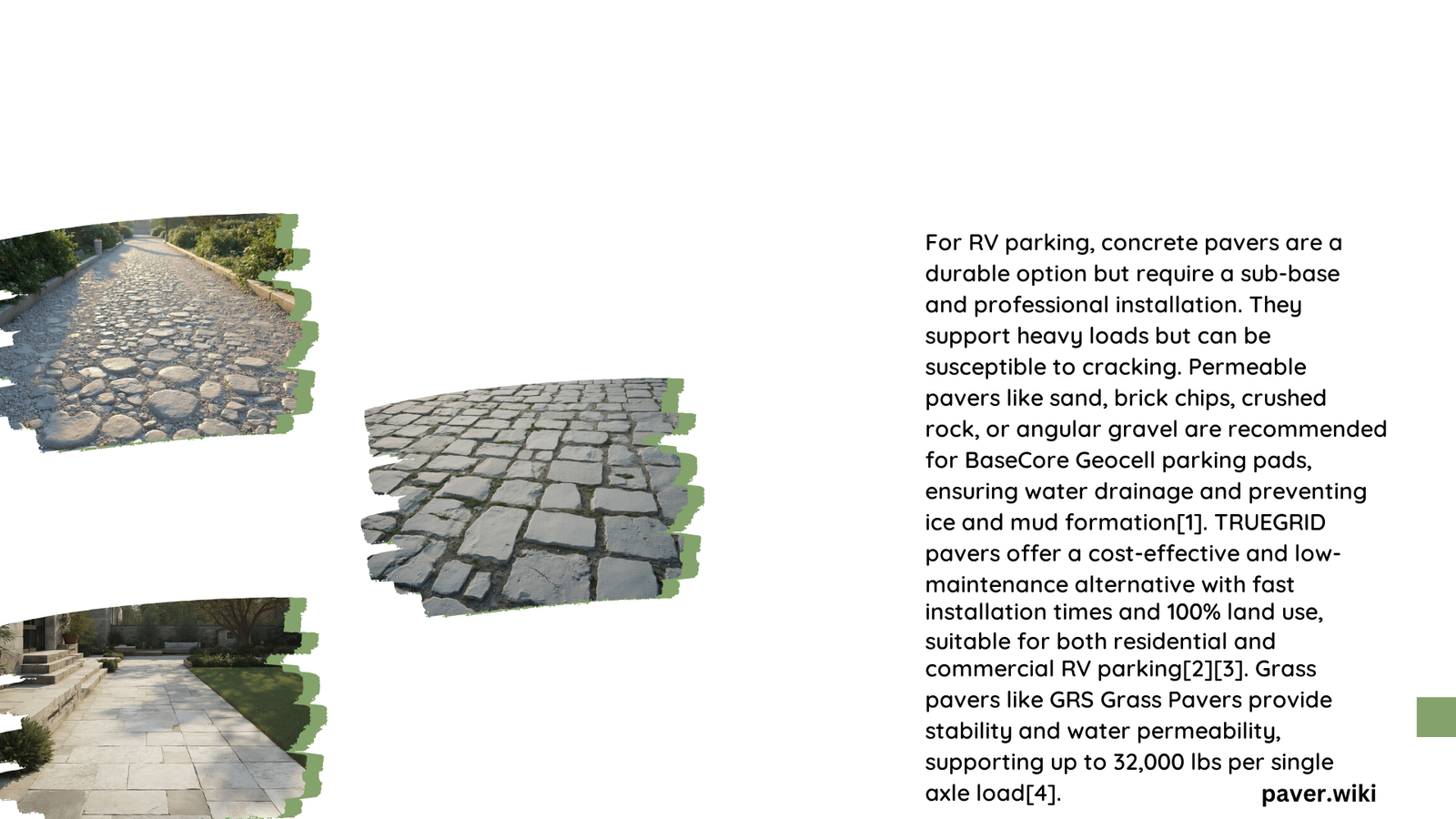Concrete pavers offer RV owners a robust, long-lasting parking solution that combines durability, aesthetic appeal, and functional performance. These specialized surface materials provide superior load-bearing capacity, excellent drainage, and minimal maintenance requirements, making them an ideal choice for creating stable and attractive RV parking areas that can withstand heavy vehicle weights and environmental challenges.
What Are Concrete Pavers for RV Parking?
Concrete pavers are interlocking, precast concrete units designed to create strong, flexible surface areas for various applications, including RV parking. Unlike traditional concrete slabs, these modular units offer unique advantages that make them particularly suitable for accommodating large recreational vehicles.
Why Choose Concrete Pavers for RV Parking?
| Advantage | Description | Performance Impact |
|---|---|---|
| Load Distribution | Interlocking design spreads vehicle weight | Reduces surface stress |
| Drainage Capability | Permeable options available | Prevents water accumulation |
| Flexibility | Individual units can move independently | Minimizes cracking |
How to Select the Right Concrete Pavers?

What Thickness Do RV Parking Pavers Require?
For RV parking, experts recommend:
– Minimum thickness: 4 inches
– Recommended thickness range: 4-6 inches
– Load-bearing capacity considerations:
* Heavy-duty applications need thicker pavers
* Consider vehicle weight distribution
* Consult local engineering standards
What Installation Techniques Ensure Longevity?
Preparation Steps
- Excavate area 8-10 inches deep
- Install geotextile fabric
- Create compacted aggregate base
- Add sand leveling layer
- Place pavers with precise alignment
What Are the Cost Considerations?
How Much Will Concrete Pavers for RV Parking Cost?
Cost breakdown per square foot:
– Material costs: $3 – $10
– Installation labor: $2 – $5
– Site preparation: $2 – $5
– Total estimated cost: $10 – $20
What Challenges Might You Encounter?
How to Address Common RV Parking Surface Issues?
Drainage Challenges:
– Implement 1-2% slope
– Use permeable paver designs
– Install underlying drainage systems
Soil Stability Solutions:
– Use geotextile fabric
– Thoroughly compact base layers
– Choose appropriate aggregate materials
Maintenance and Long-Term Performance
How to Preserve Your RV Parking Surface?
- Regular cleaning
- Periodic joint sand replacement
- Inspect for uneven settling
- Address drainage issues promptly
Professional Recommendations
- Consult local landscaping professionals
- Verify load-bearing requirements
- Consider climate-specific design adaptations
- Invest in high-quality materials
Final Considerations for RV Parking Pavers
Concrete pavers represent an intelligent investment for RV owners seeking durable, attractive parking solutions. By understanding material properties, installation techniques, and maintenance requirements, you can create a robust surface that enhances your property’s functionality and aesthetic appeal.
Reference:
– TRUEGRID Permeable Pavers
– Good Sam Community Forums
– Keystone RV Forums
